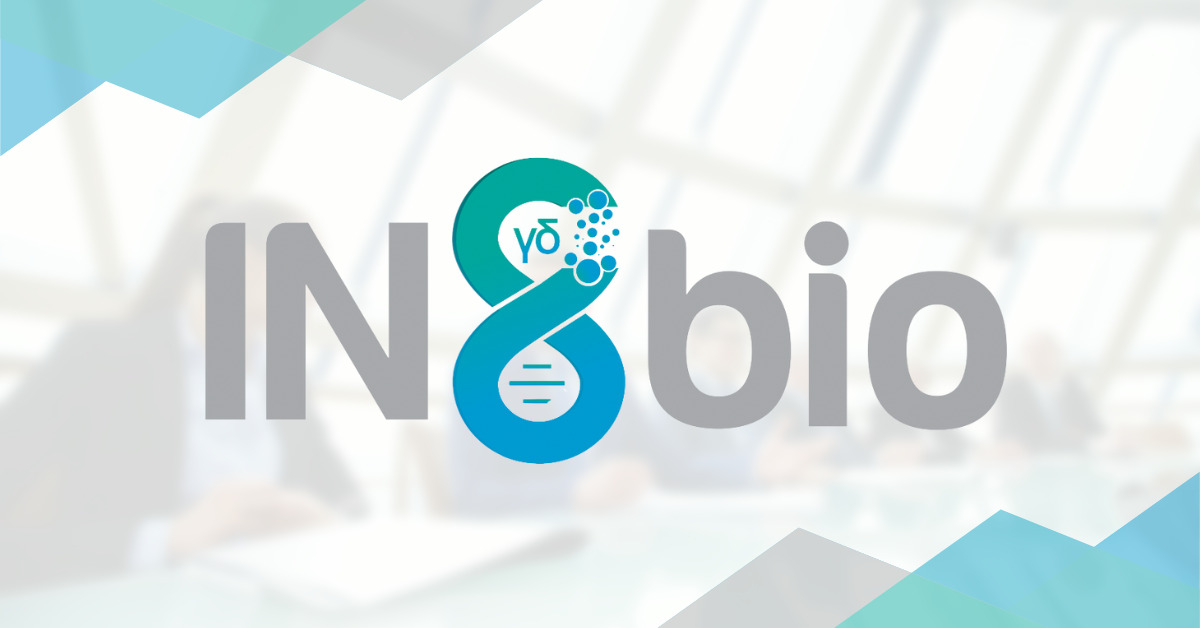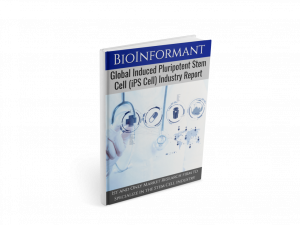|
|
-
This data represents a step forward in developing next-generation ‘off-the-shelf’ iPSC derived gamma-delta T cells. Our proprietary expansion methods are serum and feeder-free and have the potential to produce billions of iVδ1 T cells.
-
IN8bio’s iVd1+ subtype cells have an expression profile linked to a low risk of cytokine release syndrome (CRS) and have shown strong cancer-killing abilities against various solid and liquid cancers.
-
Showcases the capability to manufacture specific gamma-delta T cell sub-types using a process that can be scaled for GMP- manufacturing as a potentially ‘off-the-shelf’ platform for allogeneic cell therapy.
NEW YORK, — IN8bio, Inc. (Nasdaq: INAB), a leading clinical-stage biopharmaceutical company focused on innovative gamma-delta T cell therapies, today presented new positive preclinical data from its induced pluripotent stem cell (iPSC) gamma-delta T cell platform at the Society for Immunotherapy of Cancer’s (SITC) 38th Annual Meeting (Abstract #: 637 in Exhibit Halls A and B1). The data represents a significant advance in the development of the INB-500 iPSC program towards the development of allogeneic gamma-delta T cell therapies.
“Our deep understanding of gamma-delta T cell biology allows for significant ex vivo expansion capabilities,” said William Ho, Co-founder and CEO. “We have successfully developed and utilized a robust serum and feeder-free process for generating iPSC derived gamma-delta T cells, representing an important step towards developing a truly allogeneic ‘off-the-shelf’ gamma-delta T cell source for therapeutic development.”
The presented data underscores the platform’s ability to reprogram donor cells into iPSCs, expand them, and guide their differentiation into gamma-delta T cells through IN8bio’s proprietary process, which can be scaled for full GMP manufacturing. Notably, the platform enables the differentiation into both Vd1+ and Vd2+ cell subtypes using cell-type specific processes. The iPSC-derived gamma-delta T cells underwent comprehensive characterization, encompassing morphological analysis, cell surface markers and functional assessment via tumor cell killing assays. Key findings include:
- iVd1+ gamma-delta T cells expressed the cell markers expected of innate gamma-delta T cells, including a strong capacity for cytokine release, indicating that the cells possess an effector phenotype.
- To date, hundreds of millions of iVd1+ gamma-delta T cells have been produced from single iPSC clones at a low passage number.
- The cells demonstrated robust cytotoxic activity across a variety of cancer cell lines, including ovarian, glioblastoma (GBM), acute myeloid leukemia (AML) and chronic myeloid leukemia (CML) cell lines, potentially providing an allogeneic platform for a broad range of cancers.
- Cryopreservation did not impact the cells with the Vd1+ gamma-delta T cells showing comparable cytotoxicity to fresh cells, which allows them to be expanded and banked for potential on-demand clinical use.
“High concentrations of gamma-delta T cells in both peripheral blood and in solid tumor infiltrates are associated with improved survival outcomes in both hematopoietic and solid cancers,” said Lawrence Lamb, PhD, Co-founder and Chief Scientific Officer. “iPSC-derived gamma-delta cells could address existing challenges, including donor sourcing and limitations of sufficient cell numbers to sustain a therapeutic effect particularly in solid tumors. iPSCs, with their nearly unlimited self-renewal capacity, multi-lineage differentiation potential, and relative ease of generic engineering offer the possibility of therapeutic cell production for patients across a wide range of cancers.”
About IN8bio
IN8bio is a clinical-stage biopharmaceutical company focused on the discovery, development and commercialization of gamma-delta T cell product candidates for solid and liquid tumors. Gamma-delta T cells are a specialized population of T cells that possess unique properties, including the ability to differentiate between healthy and diseased tissue. IN8bio’s DeltEx platform employs allogeneic, autologous, iPSC and genetically modified approaches to develop cell therapies, designed to effectively identify and eradicate tumor cells.
IN8bio has initiated a Phase 2 trial of INB-400 in glioblastoma (GBM) at multiple centers across the United States and has two ongoing Phase 1 trials in solid and hematological tumors, including INB-200 for GBM and INB-100 for patients with hematologic malignancies undergoing transplantation. IN8bio also has a broad portfolio of preclinical programs focused on addressing other hematological and solid tumor cancers.





















Tell Us What You Think!